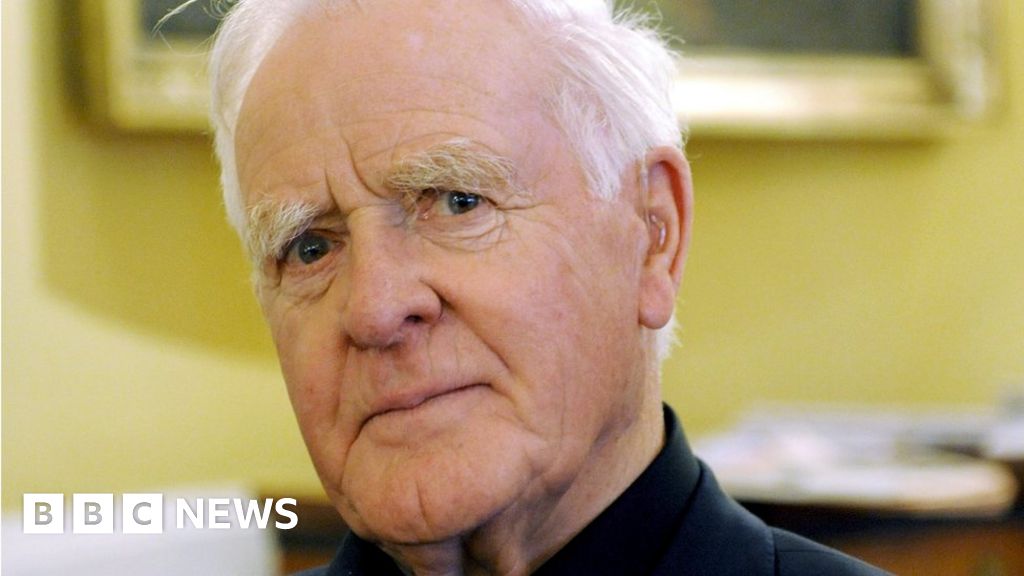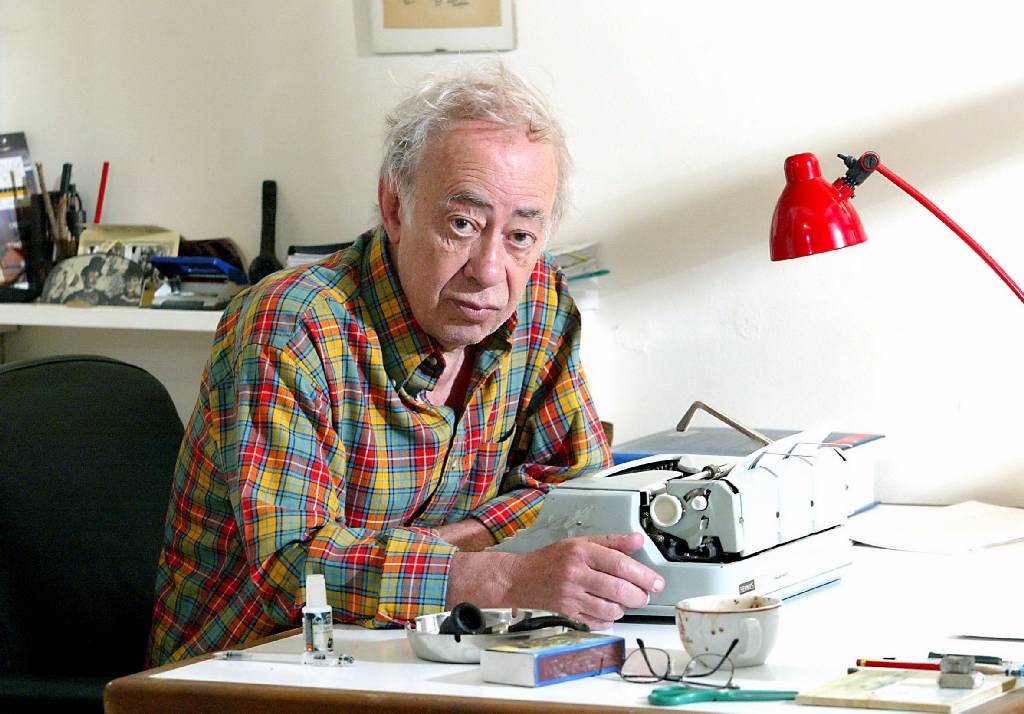Κατευόδιο στον Αλμπέρ Ουντερζό, συνδημιουργό του Αστερίξ.
https://www.bbc.com/news/entertainment-arts-52016721
https://www.bbc.com/news/entertainment-arts-52016721

"as a cat may look at a king" - κορυφαίο!Στο διαδίκτυο κυκλοφορεί η μετάφραση από μια ενδιαφέρουσα αυτοβιογραφική αφήγηση. Επειδή η μετάφραση περιέχει και κάτι που δεν μου καθόταν καλά («Έγραψα τα πρώτα μου τρία βιβλία όσο ήμουν στοιχειό· τα υπόλοιπα δεκαεπτά όταν πια ελευθερώθηκα.») αναζήτησα το πρωτότυπο, το οποίο ανακάλυψα στο βιβλίο Conversations with John le Carré (2004). Πρόκειται για κείμενο του 1996 το οποίο απευθυνόταν στο προσωπικό των εκδόσεων Knopf που θα αναλάμβαναν την προώθηση του νέου του βιβλίου The Tailor of Panama. (Διόρθωσα και τρία λάθη στο αγγλικό.)
Let me tell you a few things about myself. Not much, but enough. In the old days it was convenient to bill me as a spy turned writer. I was nothing of the kind. I am a writer who, when I was very young, spent a few ineffectual but extremely formative years in British Intelligence.I never knew my mother till I was twenty-one. I act like a gent but I am wonderfully badly born. My father was a confidence trickster and a gaol bird. Read A Perfect Spy.I hate the telephone. I can’t type. Like the tailor in my new novel, I ply my trade by hand. I live on a Cornish cliff and hate cities. Three days and nights in a city are about my maximum. I don’t see many people. I write and walk and swim and drink.Apart from spying, I have in my time sold bathtowels, got divorced, washed elephants, run away from school, decimated a flock of Welsh sheep with a twenty-five-pound shell because I was too stupid to understand the gunnery officer’s instructions, taught the sons of the rich at Eton College, and backward children in a special school.I have four sons and ten grandchildren. It is well over thirty years since I hung up my cloak and dagger. I wrote my first three books while I was a spook, I wrote the next thirteen after I was at large.If I had gone to sea instead of going to the spies, I would have written about the sea. Joseph Conrad did that, and used the seafaring life superbly as his theatre of man’s striving, with its own laws and language and morality, its own cruelties and rewards and glimpses of the infinite.Sometimes Conrad used the sea to scare the pants off us. Sometimes to tell us a love story. Or a comedy.And as a cat may look at a king, I look to Conrad for that example— except that, by an accident of life, the mast that I served before was the secret one. Spying—not the sea—became my element.And when a writer has found his element, there is no limit to the stories he can tell, except that limit imposed by his own creative talent.I wonder how Joseph Conrad would have fared on the Today show:• “Joe, is the Polish Navy today superior to the American Navy?”• “Joe, what are your views, please, on same-sex relationships below decks?”• “Joe, how do you regard the expansion of the motorised yacht industry as applied to your writings?”A good writer is an expert on nothing except himself. And on that subject, if he is wise, he holds his tongue. Some of you may wonder why I am reluctant to submit to interviews on television and radio and in the press.The answer is that nothing I write is authentic. It is the stuff of dreams, not reality. Yet I am treated by the media as though I wrote espionage handbooks. I am regarded as a sage on every spy case from the double-agent Judas to your wretched Mr. Aldrich Ames. (Note: A CIA official who was a Soviet mole; he was arrested in 1994.)And to a point I am flattered that my fabulations are taken so seriously. Yet I also despise myself in the fake role of guru, since it bears no relation to who I am or what I do. Artists, in my experience, have very little centre. They fake. They are not the real thing. They are spies. I am no exception.[… Details about The Tailor of Panama]Do you know something? It’s August 12th. Today, thirty-five years ago, the Berlin Wall went up. I was there. The British Prime Minister Harold Macmillan received the news on a Scottish grouse moor because August 12th is by tradition the first day of grouse shooting. He told the journalists it was all got up by the press and went on shooting grouse. And I hurried home and wrote The Spy Who Came in From the Cold.I did a lot of hard labour after that and life wasn’t always easy and the books weren’t all perfect. But I also had a lot of fun.And I hope that you can share, with the publication of this book, some of the fun I had in the writing of it, and some of the affection I feel for the characters.
Παίχτηκε και μάλιστα έχω δει κάποια επεισόδια, οπότε το δικό μου μυαλό πήγε αμέσως εκεί (αν και δεν είχα σκεφτεί ποτέ πριν να μεταφράσω το spook).I wrote my first three books while I was a spook, I wrote the next thirteen after I was at large.
Δηλαδή περίπτωση κοιτάζουμε και τις άλλες σημασίες. Υποθέτω το σήριαλ Spooks δεν παίχτηκε ποτέ στην Ελλάδα.

Έχω φανταστεί αυτη τη διαδικασία να γίνεται αενάως ανάμεσα στις δύο γλώσσες. Ευτυχώς, η μετάφραση είναι και τρόπος βιοπορισμού, οπότε δεν αφήνουμε το καλύτερο να γίνεται εχθρός του καλού. (Με τη σημασία που καταλαβαίνετε ότι θέλω να αξιοποιήσω.)Τα μετέφραζε, αλλά επειδή, όπως έχει πει, η μετάφραση είναι "μια πολύ αυστηρή ανάγνωση", ξαναγράφοντας το κάθε βιβλίο το βελτίωνε.
